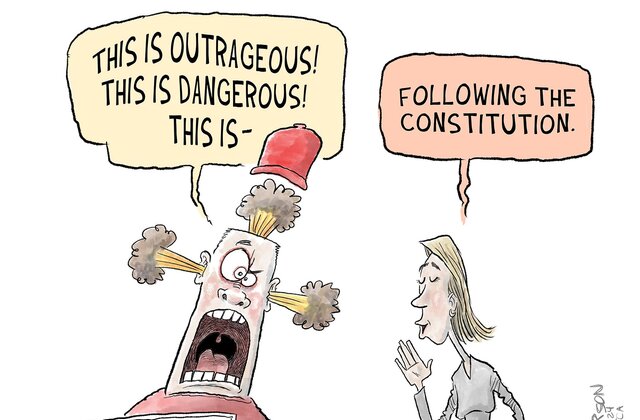[ad_1]
NASHVILLE, Tennessee (AP) — Tennessee’s top Republican lawmakers say they have no problem with the situation in the state. Strict policy on restoring voting rights For those convicted of felonies, arguing that people should not violate the law if they want to continue voting.
Earlier this week, Tennessee’s elections office confirmed to The Associated Press that convicted felons will have to have their gun rights restored before they become eligible to vote. The announcement stunned civil rights advocates, who countered that the state’s system was already onerous and that this latest requirement would worsen voter disenfranchisement throughout the state. Others expressed surprise at linking firearms access to voting.
However, in GOP-dominant Tennessee, Republican leaders have repeatedly rejected calls to reform the state’s voting-rights restoration policy. This year is set to be no different as several members prepare to run for re-election in the deeply conservative state.
“My advice is don’t commit any felonies,” House Majority Leader William Lamberth told reporters Thursday. “If you have been convicted of a felony, it takes a little work to fully reintegrate into society. We have made a way for that. But the best way to avoid that problem is to not commit any crimes in the first place.”
House Speaker Cameron Sexton also said he saw no problem with the state’s policy, saying that “there are consequences for various actions.”
political cartoon

Meanwhile, Senate President Randy McNally told the AP earlier this month that he would prefer even more restrictions.
“Overall, I am not in favor of voting for criminals. I think he committed a serious crime, a serious crime against the state,” McNally said. “And unless they get out of prison and are forgiven or acquitted of what they did, they lose their rights.”
Democratic lawmakers, who have little power inside the state House, reacted with anger and sadness at their GOP colleagues’ response.
Senator Raumesh Akbari, Democrat of Memphis, said, “You should not have to wear this kind of scarlet letter that prevents you from participating in our most basic concept of democracy.”
Last summer, election officials interpreted a state Supreme Court ruling as saying that all convicted felons applying for restored voting rights must first have their full citizenship rights restored by a judge or show that they can be pardoned. was given. Voting rights advocates have argued that the legal interpretation was baseless.
The change, introduced by election officials in July, has since blocked almost all restoration of voting rights: more than 60 people were disenfranchised and only one person was sanctioned. In the roughly seven months before it was implemented, about 200 people were approved and 120 were rejected, according to data from the Secretary of State’s office.
Yet the issue over gun rights did not come to the fore until Tuesday, when state elections coordinator Mark Goins told the AP that one’s full citizenship rights must be restored before gaining the right to vote, adding, “Under the Tennessee Constitution “The right to bear arms is a right of citizenship.”
Akbari said she was troubled by the Secretary of State’s interpretation and called on the General Assembly to pass legislation to define what it means to be a voter in Tennessee.
“To say that someone should not commit a crime if they want to have the right to vote is simply unacceptable,” he said. “It’s un-American.”
Democratic Representative Joe Towns compared the state policy to Jim Crow-era laws intended to prevent black people from running in elections. He said it was no different from tests to register to vote, where black voters were asked to guess the number of jellybeans in a jar and were disqualified if they guessed wrong.
“It’s the same old trick of preventing people from having the right to vote,” he said.
Copyright 2024 The associated Press, All rights reserved. This material may not be published, broadcast, rewritten, or redistributed.
[ad_2]
Source link
